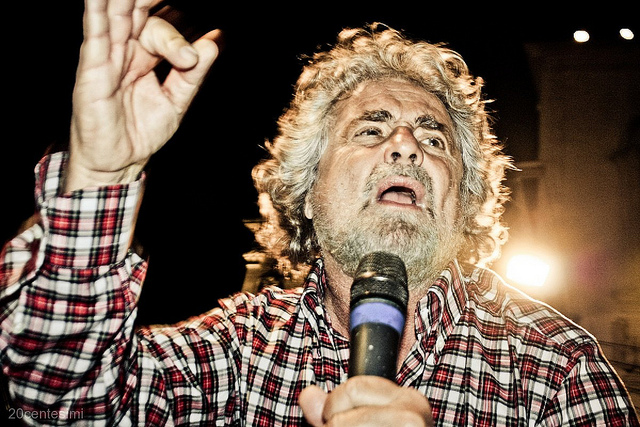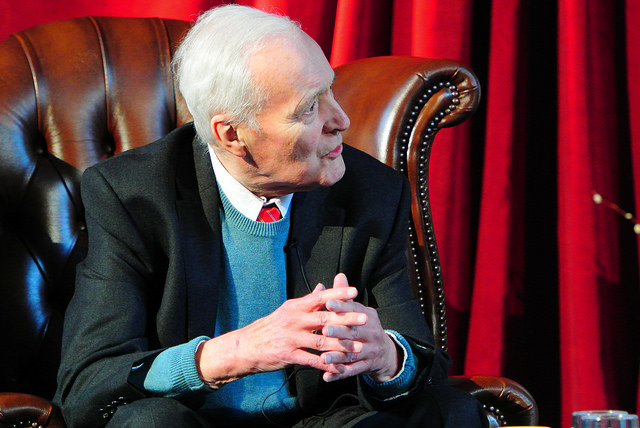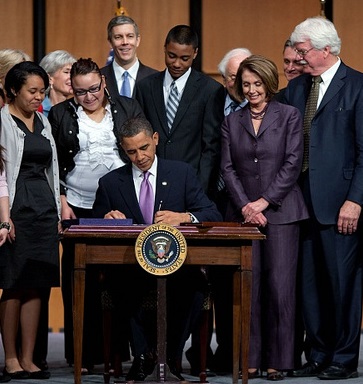20 things we learned about democracy in April 2014
April 2014 is thought to be the most democratic month in human history, owing largely to the Indian general election taking place this month. In the UK, however, democracy wasn’t shown in its best light, with Culture Secretary Maria Miller resigning over her expenses, while Nick Clegg and Nigel Farage held a rather ill-tempered debate about Europe. Surely there were other insights revealed this month that might help redeem democracy’s reputation?
1. Holding European Parliament and local elections concurrently boosts voter turnout by about 3%. But it can also hand an electoral advantage to certain parties. Find out more here.
2. Britain’s largest political donation came from lottery winners Colin and Chris Weir, for the Scottish independence campaign. Find out more here.
3. A significant proportion of people from ethnic minority communities in the UK wrongly believe that they are not entitled to vote. Find out more here.
4. Birmingham City Council doesn’t seem to know whether filming is permitted at its own council meetings (it is), while Wigan Council calls the police to eject councillors using Twitter during meetings. Find out more here and here.
5. There is a widespread belief among professional political campaigners that attempting to mobilise voters in low-income communities is not worth the effort. Find out more here.
6. There is a 1 in 3 chance that someone elected as a UKIP MEP will no longer be a party member by the time of the next election. Find out more here.

City Till We Die, or at least until our owner manipulates us into voting for his name-change proposal with a loaded referendum question (14).
7. The government has decided that local councillors are no longer entitled to join the Local Government Pension Scheme. The MPs Pension Scheme remains in place. Find out more here.
8. Both Labour and the Conservatives have recruited senior members of Barack Obama’s campaign team to work on their 2015 election campaigns. Find out more here.
9. Democracy isn’t fun. But according to public participation expert Josh Lerner, it can be. Find out more here.
10. You can’t run a quango if you’ve been declared bankrupt. Provided the government finds out. Find out more here.
11. The right to protest is being curtailed in privately-owned public spaces, including universities. Find out more here.

Beppe Grillo’s Five Star Movement has radically transformed Italian politics. But so far nobody has thought to tell the policy-makers (17).
12. Female MPs are refusing to take part in Prime Minister’s Questions because of its testosterone-fuelled atmosphere. Find out more here.
13. One recent election for a Governor of an NHS Foundation Trust had more candidates standing than votes cast. Find out more here.
14. Using a loaded question in a referendum is the best way to produce the desired result. Just ask the fans of Hull Tigers, aka Hull City Football Club. Find out more here.
15. Ken Clarke believes the life expectancy of political leaders is getting shorter, partly due to the demands of a 24/7 media environment. Find out more here.
16. The government’s new Minister for Women reports to a man. Find out more here.

The late Tony Benn, politician and leading campaigner against inherited privilege. Just like his grandfather, father, son and granddaughter (19).
17. The large-scale mobilisaton of voters led by Beppe Grillo in Italy has not yet been channelled into a real contribution to policy-making. Find out more here.
18. Politics would be improved if politicians felt less inhibited about making apologies. Find out more here.
19. Political dynasties have featured prominently in British political history, but are now declining in value. Find out more here.
20. The Proportional Representation electoral system used for European Parliament elections is ‘too democratic’ to excite the media, candidates and voters. Find out more here.
—
Note: This post reflects the views of the author, and does not give the position of LSE or Democratic Audit. Please read our comments policy before responding. Shortlink for this post: buff.ly/1i6YPEk
Images: Barack Obama (Nancy Pelosi, CC BY 2.0); Beppe Grillo (20centisimi, CC BY 2.0); Tony Benn (Chris Boland, CC BY-SA 2.0); Hull City fans (John Candy, CC BY-SA 2.0)






 Democratic Audit's core funding is provided by the Joseph Rowntree Charitable Trust. Additional funding is provided by the London School of Economics.
Democratic Audit's core funding is provided by the Joseph Rowntree Charitable Trust. Additional funding is provided by the London School of Economics.
20 things we learned about democracy in April #15 The political life expectancy of Prime Ministers is getting shorter https://t.co/RcfRbn7nbP
Some Intriguing, encouraging and worrying: 20 things we learnt about democracy in April. @democraticaudit https://t.co/lUqM52wxVT
NHS elections with more candidates standing than votes cast…and 19 other things we learned about democracy in April https://t.co/qkFEH2vXXH
20 things we learned about democracy this month, #14 Football fans are easily manipulated https://t.co/BSw2KNoe95
1/3 UKIP MEPs defect or are sacked before their term ends… and 19 other things we learned about democracy in April https://t.co/FqKIOA50ov
20 things we learned about democracy in April, #4 via @politicsinbrum you CAN film Birmingham council meetings https://t.co/ApM7P7EhZV
20 things we learned about democracy in April 2014 https://t.co/l7EDYnPVF4
Can Obama advisers take opposite sides in UK politics? Yes They Can… And 19 other things we learned about democracy https://t.co/6x2aRIYTFp
20 things we learned about democracy in April 2014 from @democraticaudit https://t.co/mK7QG2GKun
It’s possible for an electoral system to be too democratic… and 19 other things we learned about democracy in April https://t.co/hyVpLc6oHM
Sintetica rassegna sulla democrazia nel mondo del @democraticaudit 20 things we learned about democracy in April 2014 https://t.co/awQRzW9Pvj
20 things we learned about democracy in April 2014 https://t.co/ew2jGFZjhU